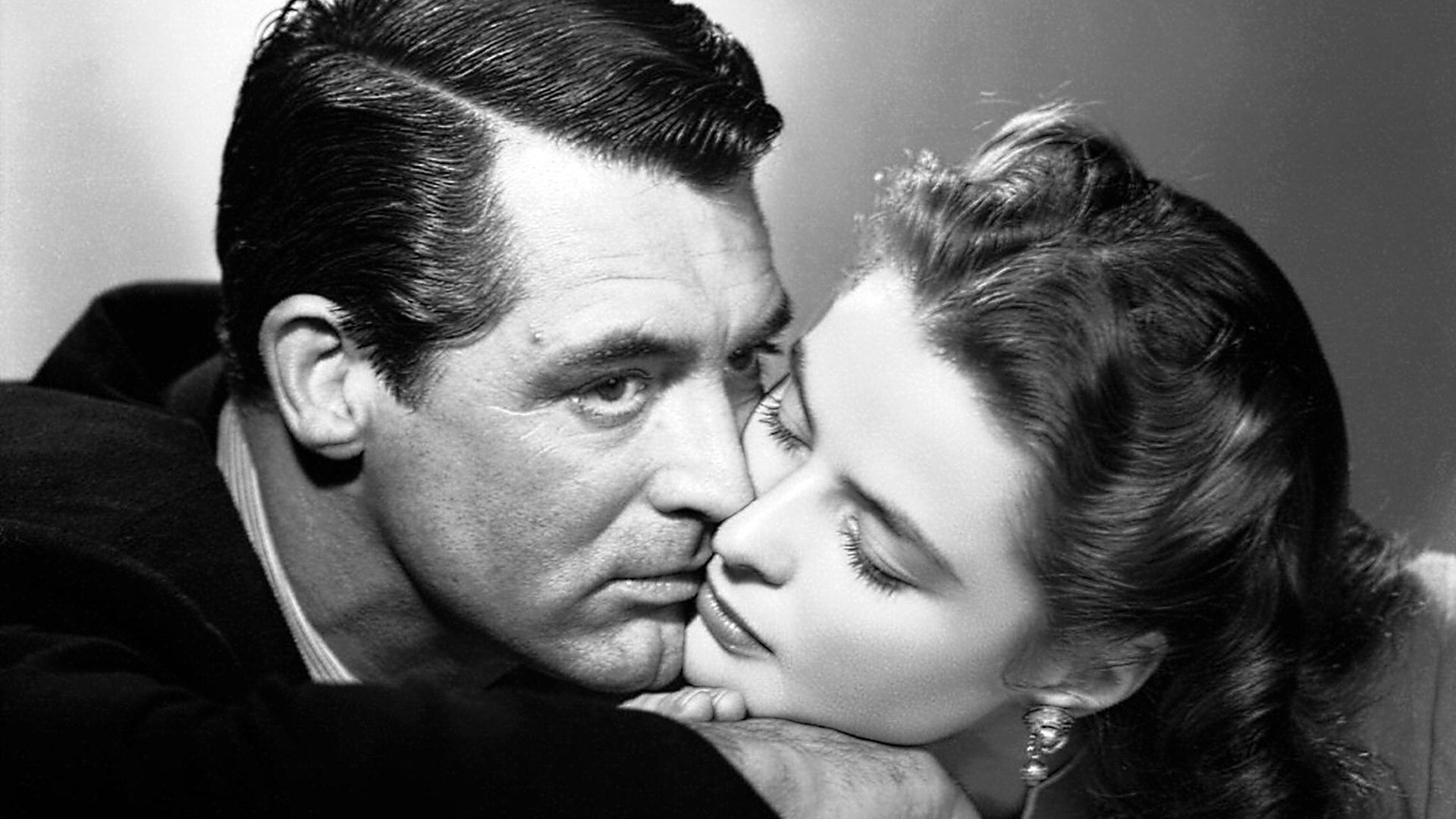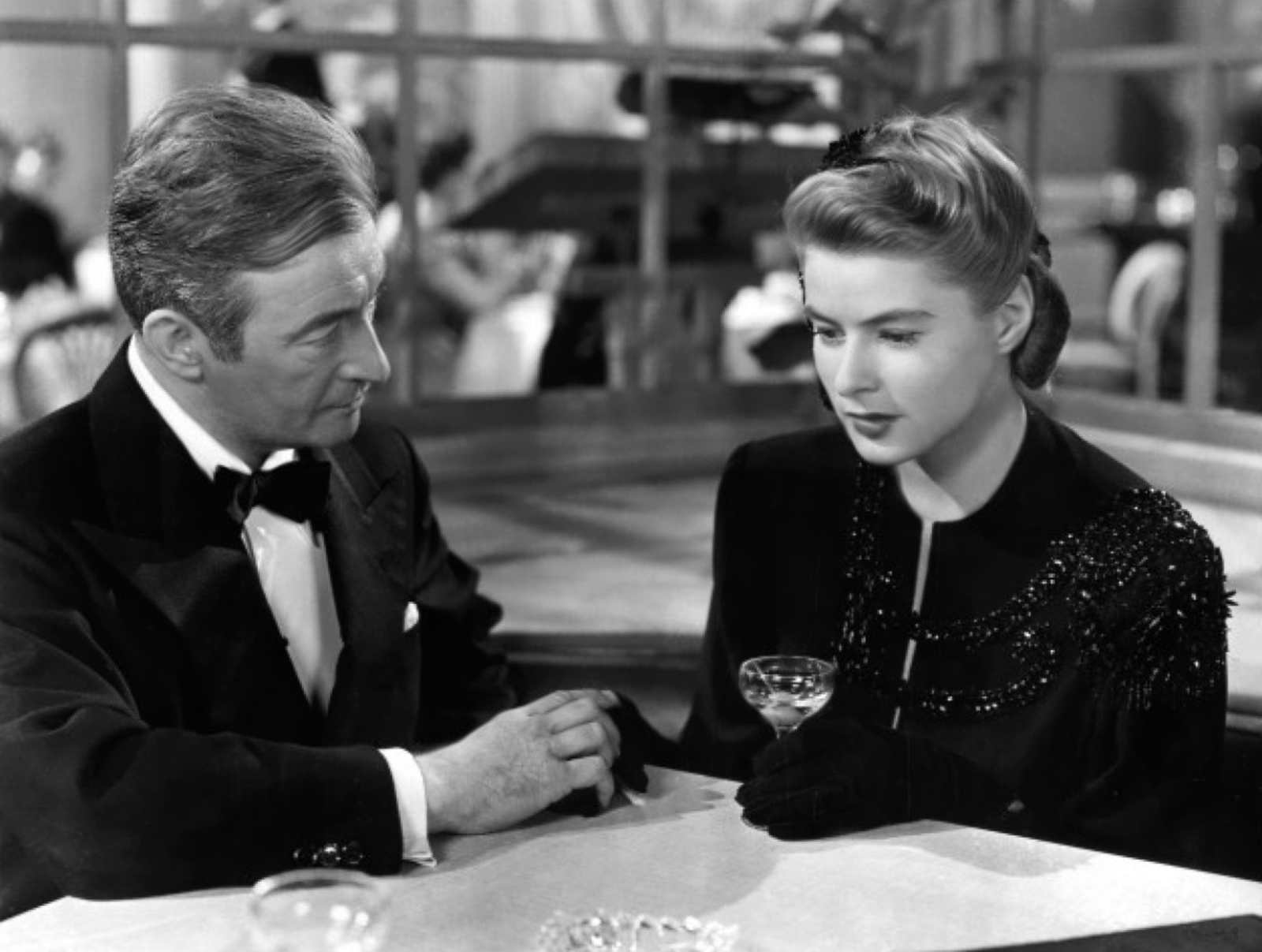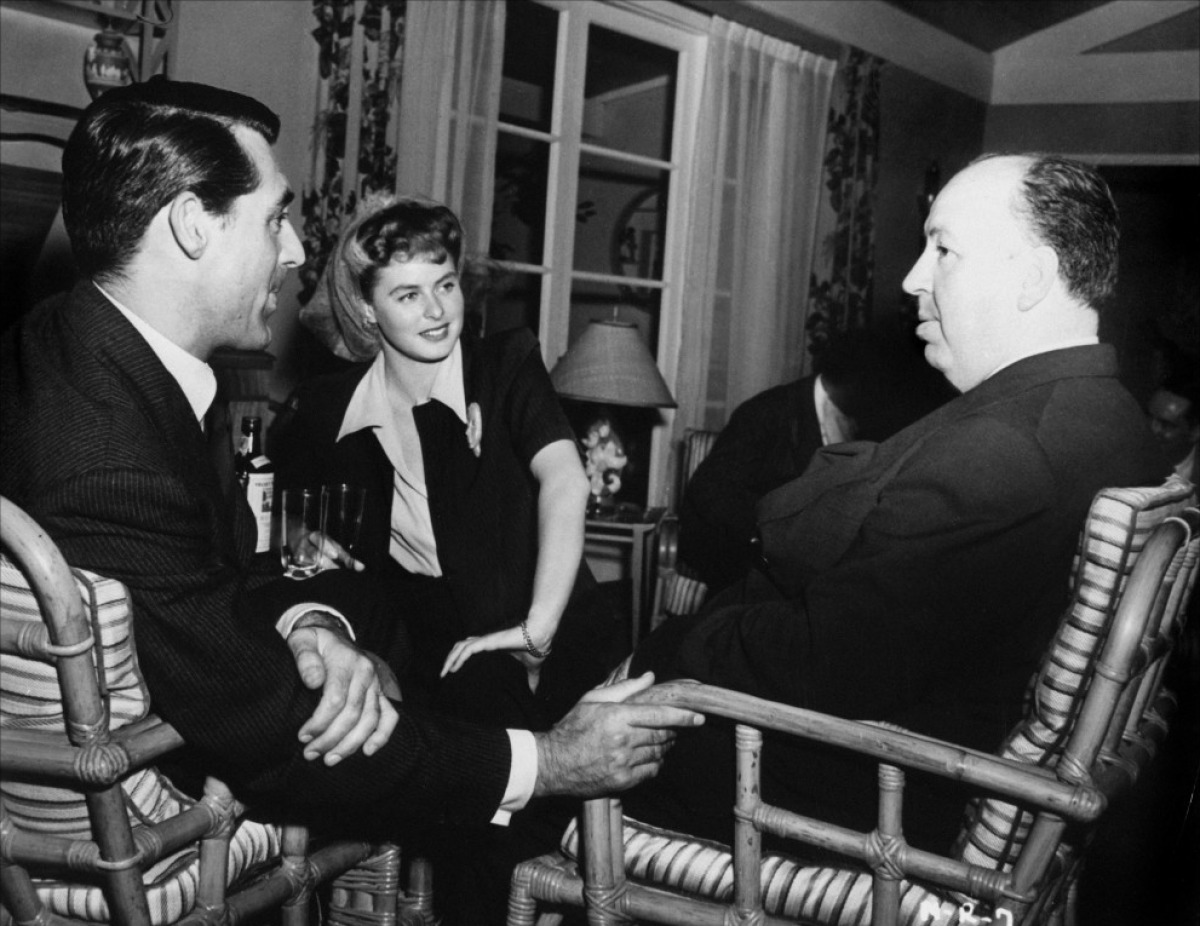This was the first paper I wrote in a course I took on Alfred Hitchcock in the Fall of 2013. It takes a look at Hitchcock's 1946 film Notorious, specifically the character of Alicia Huberman portrayed by the great Ingrid Bergman. It delves particularly into the role of Ingrid Bergman and the influence the male characters in the film have on her life.
Are the woman in Hitchcock’s films portrayed in a misogynistic way or are they portrayed in a more complex way? I agree that many of Hitchcock’s films have a male dominance quality to them. But, in the case of his 1946 film Notorious, Hitchcock attempts to have the viewer identify with the female victim in the film, specifically the character of Alicia Huberman, portrayed by Ingrid Bergman. I find the character to differ in the way woman are usually depicted in his films, specifically his “wrong man” suspense films. What is particularly different is that although Cary Grant’s character, Devlin, has an important role, the film revolves around Alicia Huberman and what she goes through. Throughout the film she is very much at the whim of men but also has the courage and strength to take whatever abuse they throw at her, she is very much a heroine. Throughout the film there are several scenes that show how the different men treat her and how different yet similar he relationships are with them.
Are the woman in Hitchcock’s films portrayed in a misogynistic way or are they portrayed in a more complex way? I agree that many of Hitchcock’s films have a male dominance quality to them. But, in the case of his 1946 film Notorious, Hitchcock attempts to have the viewer identify with the female victim in the film, specifically the character of Alicia Huberman, portrayed by Ingrid Bergman. I find the character to differ in the way woman are usually depicted in his films, specifically his “wrong man” suspense films. What is particularly different is that although Cary Grant’s character, Devlin, has an important role, the film revolves around Alicia Huberman and what she goes through. Throughout the film she is very much at the whim of men but also has the courage and strength to take whatever abuse they throw at her, she is very much a heroine. Throughout the film there are several scenes that show how the different men treat her and how different yet similar he relationships are with them.
Although it is only touched on very briefly at the beginning of the film, there is a short scene where the viewer receives some information about Alicia’s relationship with her father. The scene occurs after the late night drunken car ride with Devlin. The scene opens with Alicia lying in bed, then it cuts to a oblique angled point of view shot of Devlin to demonstrate the affects of a hangover. After an exchange in dialogue between the two, Devlin reveals that the organization he works for that wants Alicia to work for them because of her father. When she refuses, Devlin plays a surveillance recording of a conversation between her and her father. The recording reveals to the viewers how strained their relationship had become and how controlling her father was by attempting to persuade her to his side of traitorous thinking. In the recording she stands up to her father by rejecting his control of her and professing her love for her country, the country she is referring to is the United States. In Haeffner's book, he points out that Hitchcock’s films have been criticized for how they treat women the female characters, specifically the control the male characters tend to have over them. That is also the case in Notorious, but through this control, a great strength emerges from the female character.
The male relationship that has the most impact on Alicia is the romantic relationship she has with Devlin. At the heart of the narrative of the film is the romance between them, specifically the affects it has on their characters. Their relationship is both that of love and malice. There is a great sequence where we see their turn suddenly from a loving one to a cold business-like one. The scene happens shortly after Devlin has kissed Alicia for the first time and are now engaging in an affair. The sequence starts off with them entering the hotel room and then embracing passionately on the balcony playfully talking about their dinner plans. It is interesting that Hitchcock decided to use no musical score in the scene, usually a score would play to signify their romance, it seems he wanted their passionate embrace to stand alone as a message of romance to the audience. Amidst their embrace Devlin makes a phone call to check his messages, but while he does that Alicia remarks that he does not say he loves her, but he responds “actions speak louder than words.” I find that short exchange interesting because the one thing Alicia wants throughout the rest of the film is for Devlin to admit he loves her and he also fails to act in defending her honor to his organization. That sequence ends with Devlin being informed of Alicia’s assignment and having to tell her himself. Although he expresses his contempt for the assignment he knows that revealing his true feelings for Alicia would probably mean his removal as her handler, so he solemnly accepts his task and goes to inform Alicia.
Upon his return the viewer can tell that the mood in the room has completely changed simply by Devlin’s manner. He is no longer embracing Alicia or talking to her in any romantic or playful tone. He has now put up a cold, malicious, almost robotic facade to hide his true feelings for Alicia. She recognized this shift in behavior and is heartbreakingly dismayed by it. Just when she believes she has found some semblance of happiness with her affair with Devlin it is all gone instantly. The desperate exchange she has with Devlin about him not speaking up for her is heartbreaking because she does not want to be conceived in the promiscuous way that his organization perceives she is. By not coming to her defense, Alicia now believes the relationship was nothing but a sham. In this moment she desperately wants some ounce of emotion from Devlin and all she gets is an emotionless response. With these two scenes we can see the extent of emotional control that Devlin has over Alicia. Her emotional mood is dictated by his actions, or lack there of. He has the ability to provide her great happiness and great pain.
Alicia's relationship with Alexander Sebastian, portrayed by Claude Rains, is interesting because it is a false relationship, at least from Alicia’s perspective. I feel that this relationship is the more controlling than the one with Devlin because Alicia has to go along with nearly everything he says because she does not want her ruse to be found out. It places both an obligatory emotional and physical burden on her. Sebastian has a penchant for being very possessive of Alicia. His possessiveness is revealed through his jealousy of the relationship she has with Devlin, who is posing as her acquaintance. There is one scene in particular that I feel exhibits this feeing quite clearly. The scene is at a race track, after Alicia has has had a conversation with Devlin in which she is moved to tears by his treatment towards her, Alexander approaches her with inquiries into her and Devlin’s relationship. He makes accusations that Alicia is in love with Devlin and that he was watching her the whole time they were talking, but he also asks her to prove that Devlin means nothing to her by asking her to marry him. The smirk he has on his face when he says that she must prove she has no feelings for Devlin, I find to be a devious look. His marriage proposal does not come through as a sincere gesture but as a way for him to get more control of Alicia.
My favorite sequence in the film as an aspiring filmmaker is the party scene that happens at around the midway point in the film. It is a wonderful sequence of suspense and is the turning point of the film concerning the mental and physical welfare of Alicia. The sequence begins with a great wide angle crane shot of the entire room of party goers, then the camera slowly moves in towards a closeup of Alicia’s hand which contains a key. That key is significant to the plot because if she gets caught with it her cover could be blown and who knows what else would happen to her. So as a viewer the character is in great peril and they are questioning whether she will be caught or not. After she successfully gets the key into Devlin’s hands, they plan to meet at a back door that leads to a basement with a storage room. But, what enhances the situation is the level of situational suspense that is created because they have to get in and out of the storage room before the bottles of champagne run out and more is needed to be retrieved by the help. Similar to what Hitchcock did throughout his career, he uses editing as a way to create suspense. He cuts from what Devlin and Alicia are doing in the store room to back at the dwindling amount of champagne bottles in the party. The viewers know how many bottles are left but Alicia and Devlin do not, creating a sense of unease amongst the viewers
The legendary French director Francois Truffaut claimed that “Notorious” was the quintessential Hitchcock film and I agree with him. It is a film that contains many characteristics of a Hitchcock film. It has Cary Grant as the leading man and Ingrid Bergman as the leading lady, many of his films contain a conflicting romance between a leading man and woman. It contains moments of suspense, something Hitchcock will be known to do throughout his career, he is most commonly remembered as the Master of Suspense. It also contains Hitchcockian film making elements, like the crane shot at the beginning of the party scene and tilted camera angles that emphasize the characters point of view. I believe that Truffaut said that he got the most effect out of this film but uses so little to achieve it. That is the beauty of the film is that it does so much but on a small scale.
The legendary French director Francois Truffaut claimed that “Notorious” was the quintessential Hitchcock film and I agree with him. It is a film that contains many characteristics of a Hitchcock film. It has Cary Grant as the leading man and Ingrid Bergman as the leading lady, many of his films contain a conflicting romance between a leading man and woman. It contains moments of suspense, something Hitchcock will be known to do throughout his career, he is most commonly remembered as the Master of Suspense. It also contains Hitchcockian film making elements, like the crane shot at the beginning of the party scene and tilted camera angles that emphasize the characters point of view. I believe that Truffaut said that he got the most effect out of this film but uses so little to achieve it. That is the beauty of the film is that it does so much but on a small scale.
I find that the strongest portions of the films are the small things, like the look on an actors face, the tone in an actors voice, it says so much more than just the words conveyed. I specifically attribute that to excellent acting performance by Ingrid Bergman. Throughout the film her character is pushed and pulled in different directions by men controlling her life, but she has the strength to take all of it and keep going. Granted it is ultimately the love Devlin has for Alicia that saves her life, but she endures so much throughout the film that I can not help but admire her



No comments:
Post a Comment